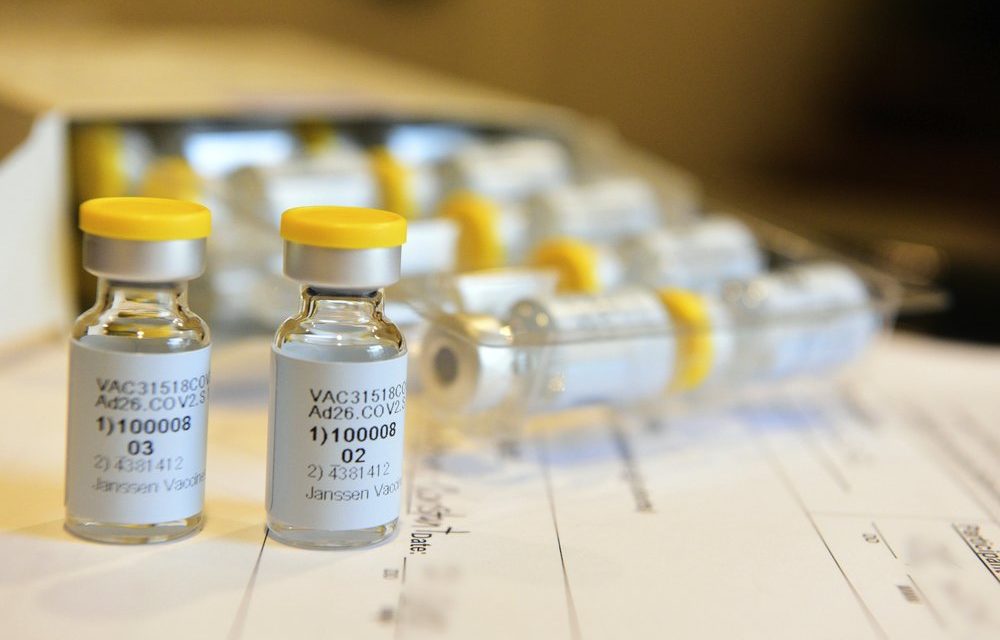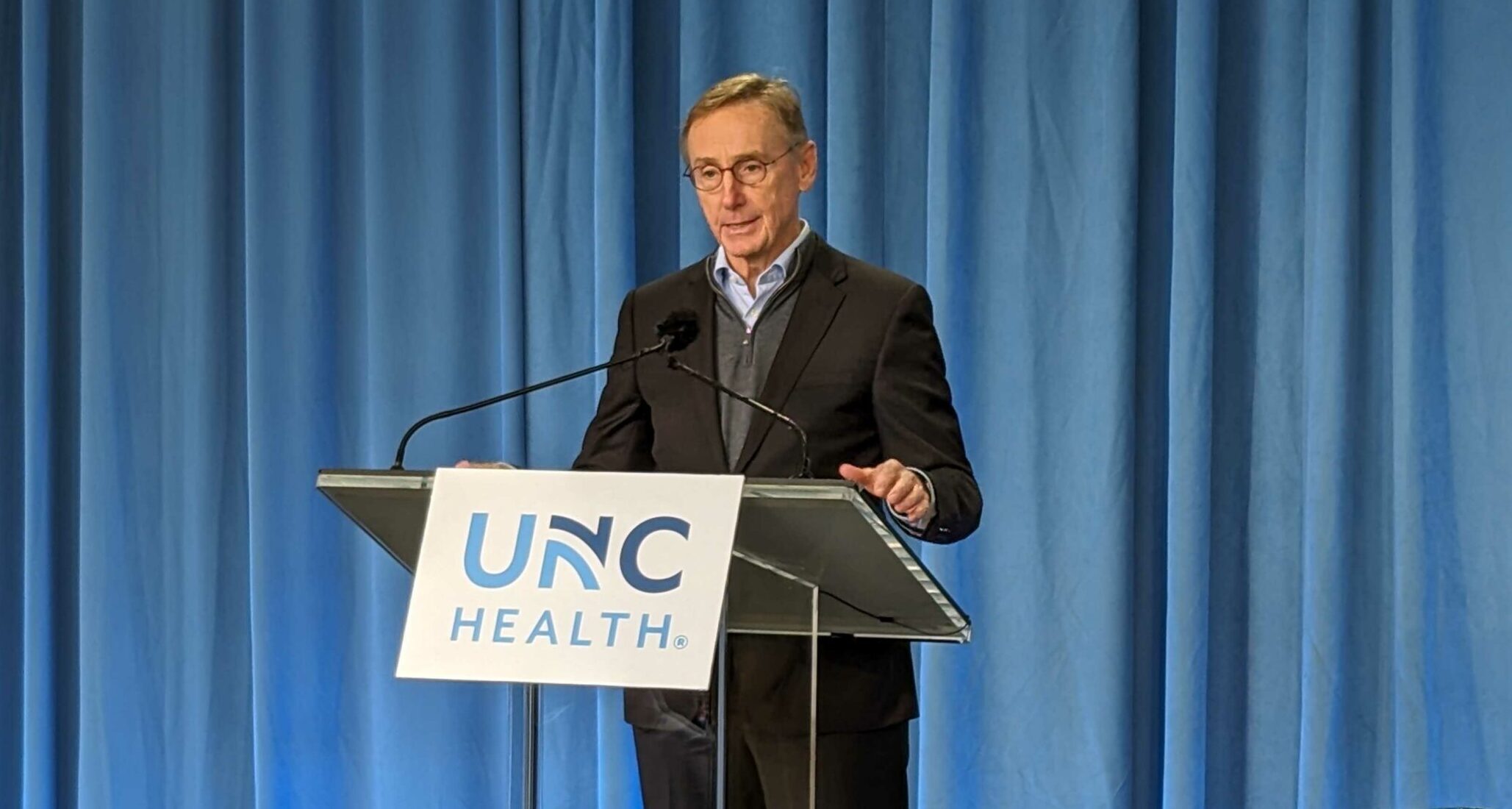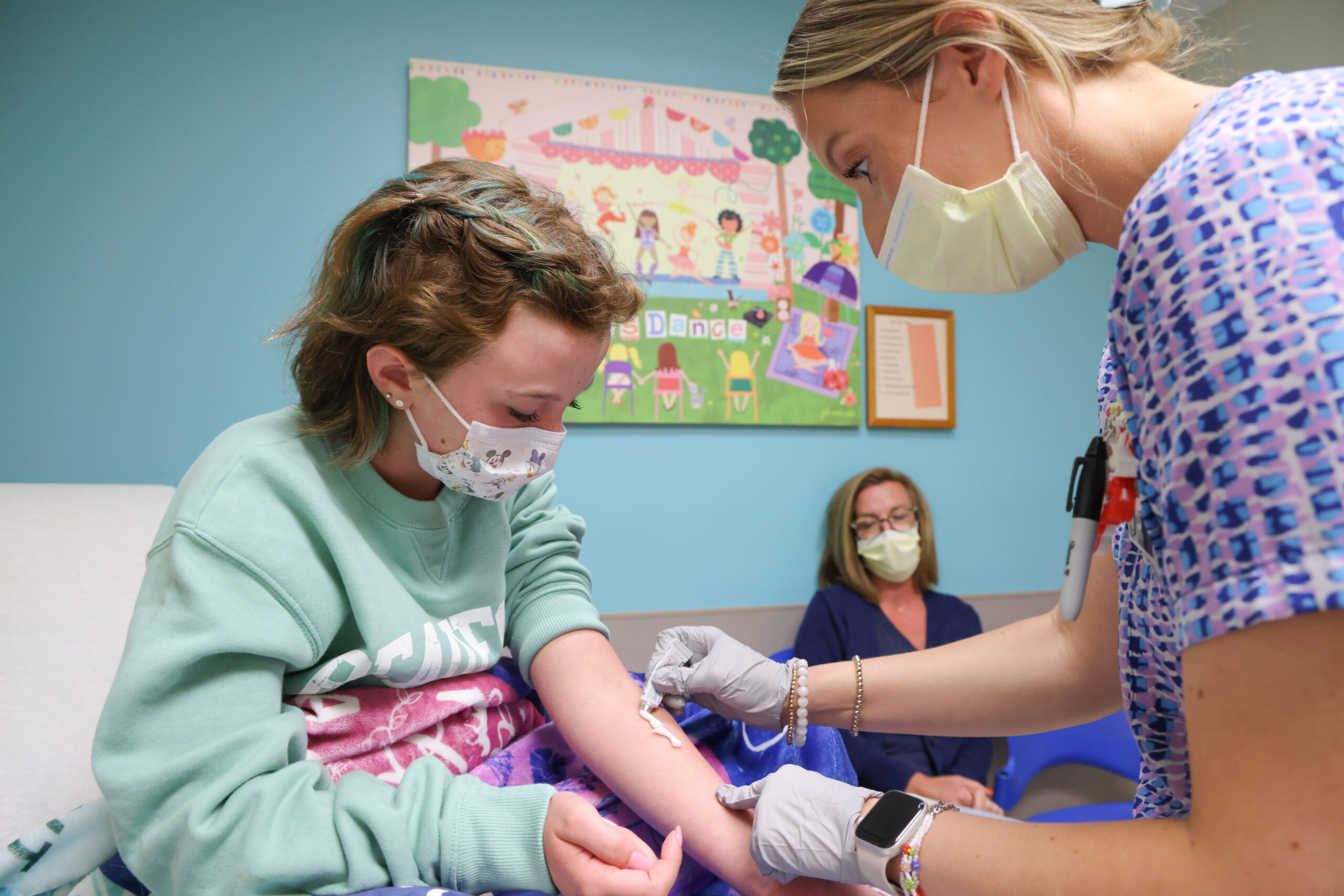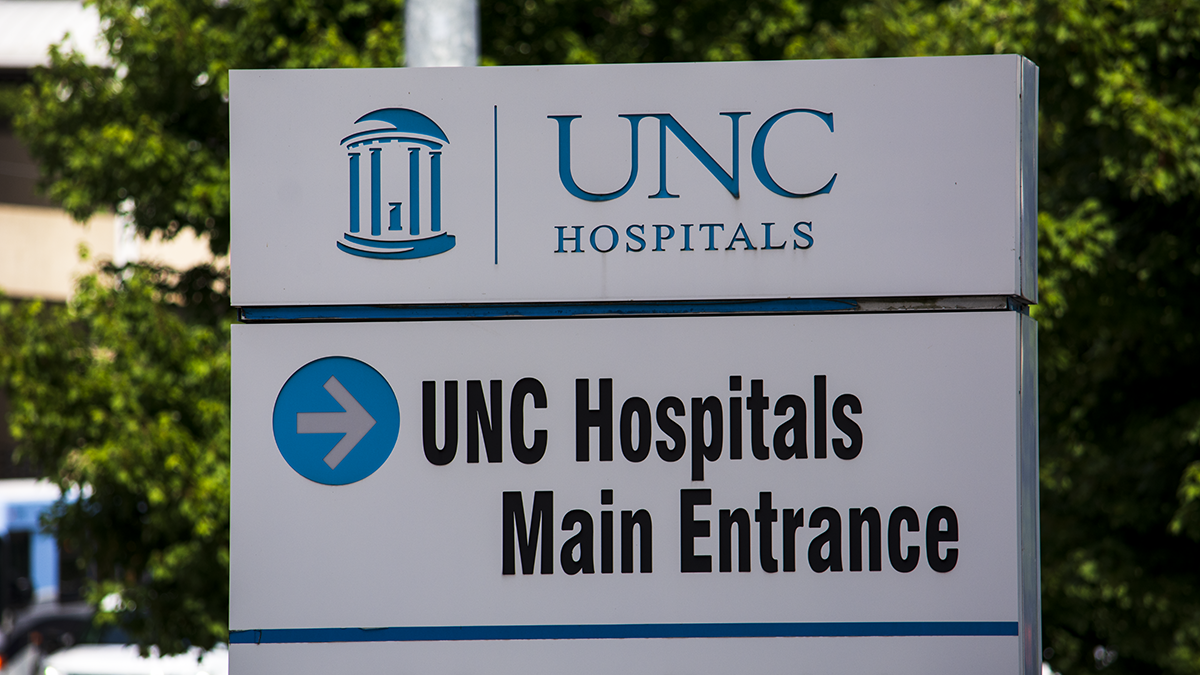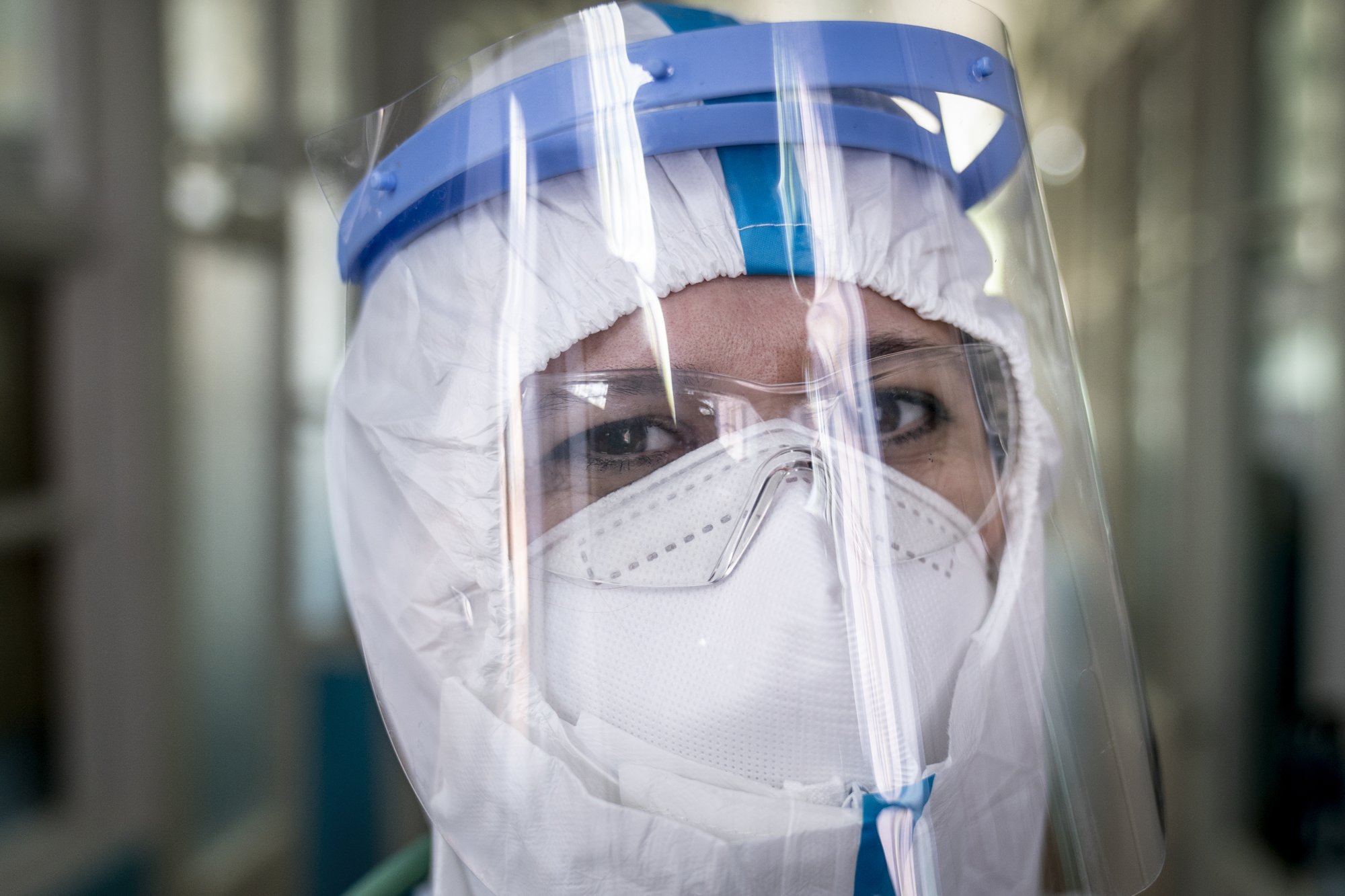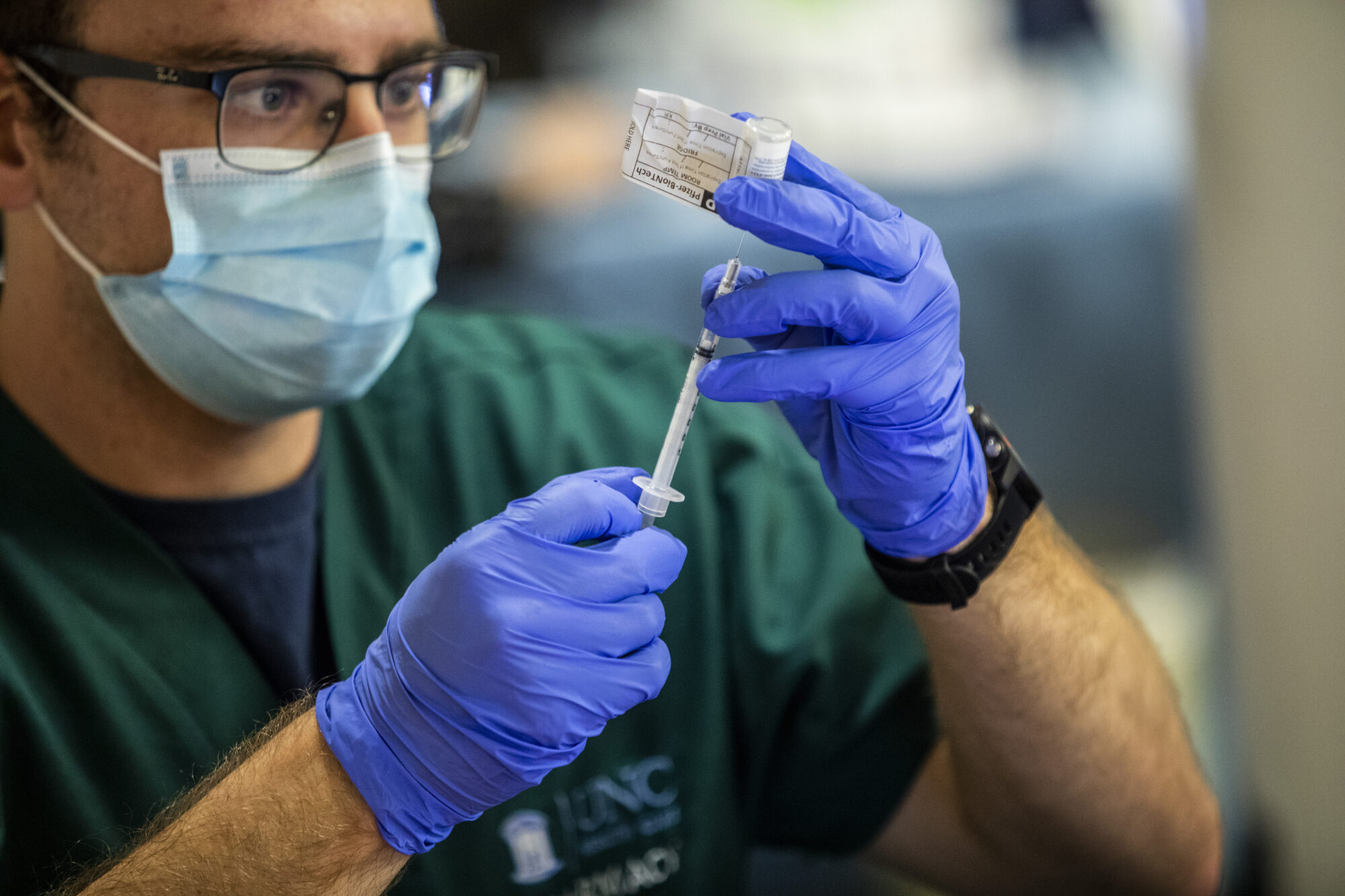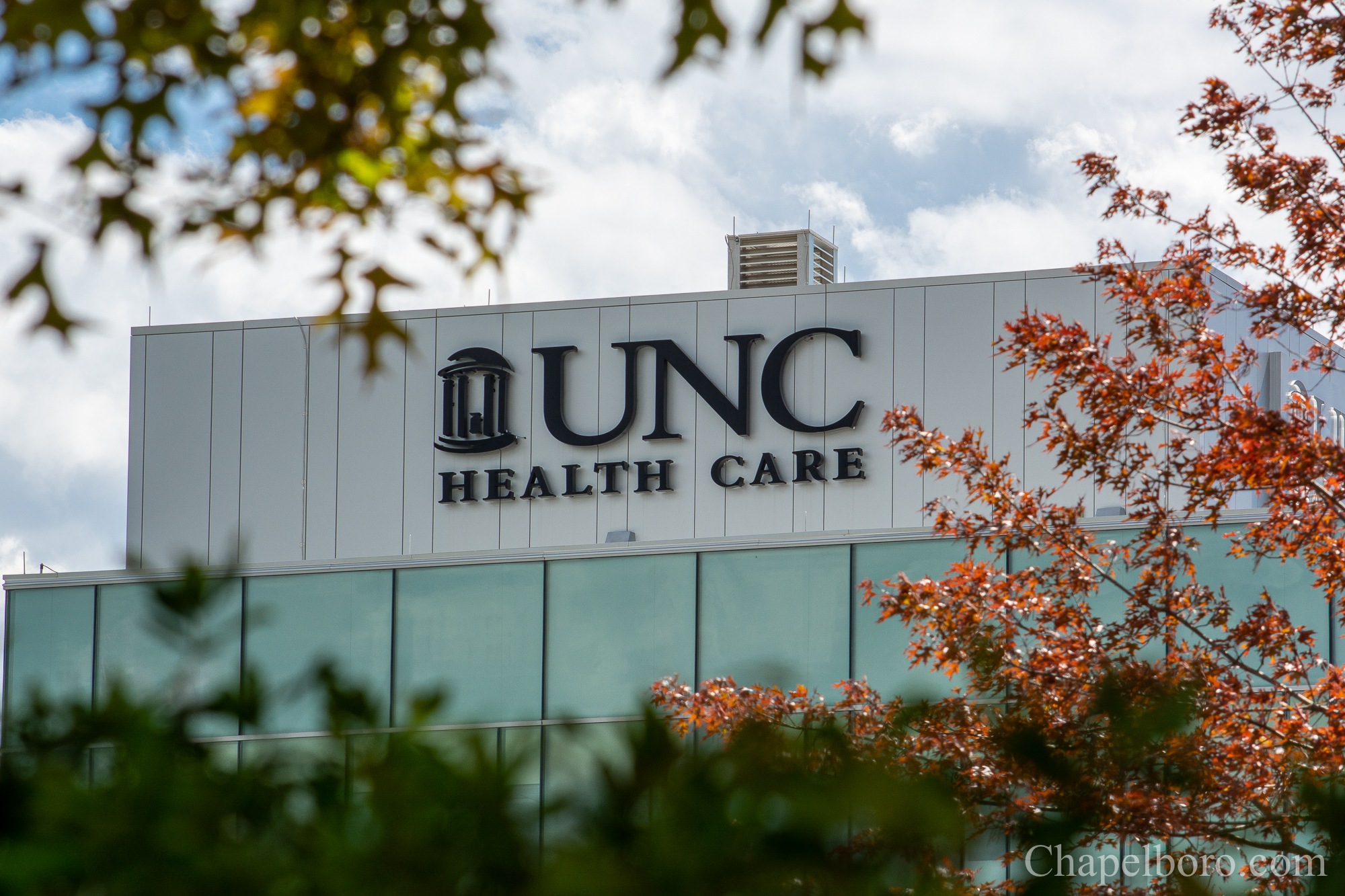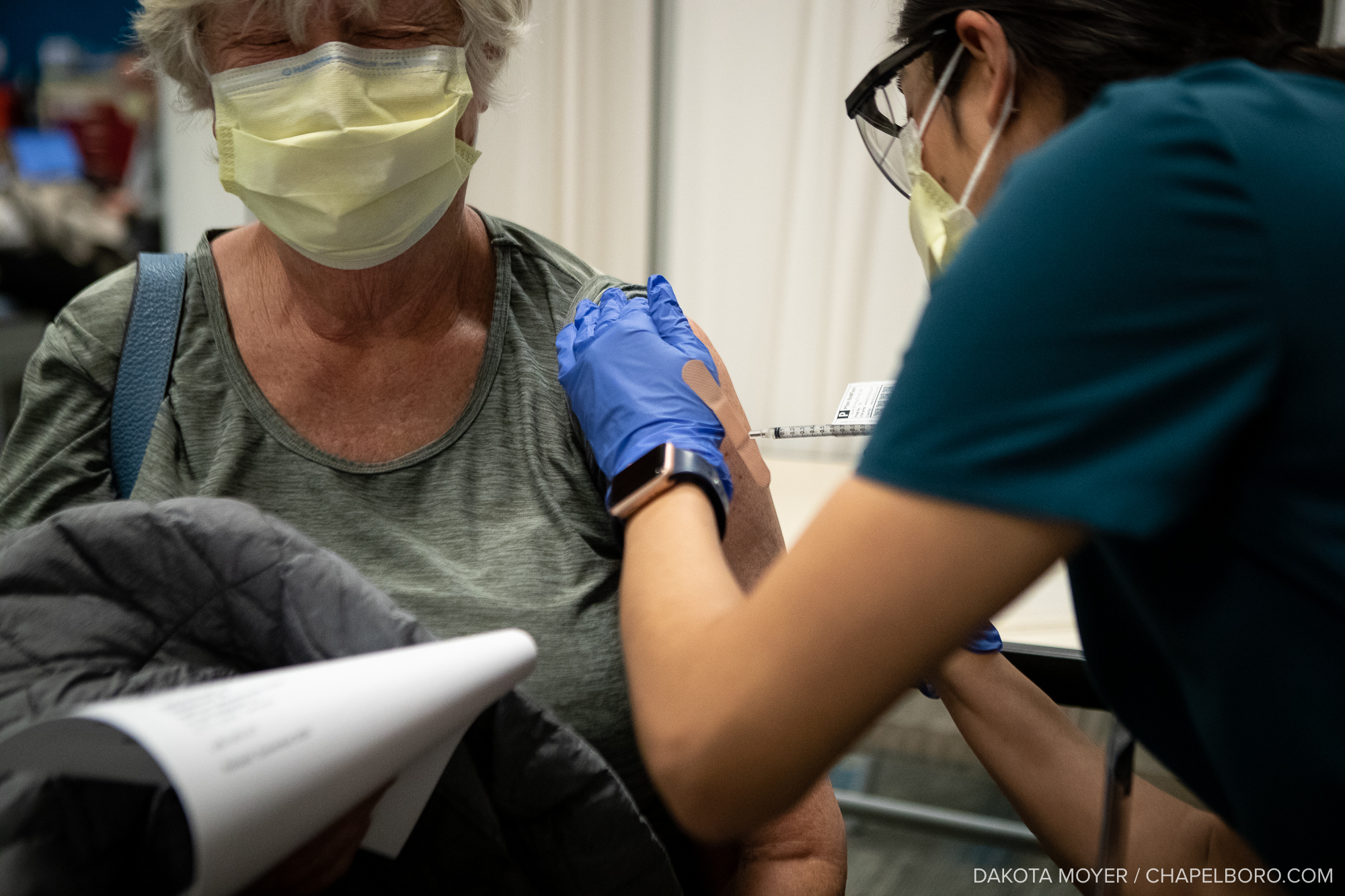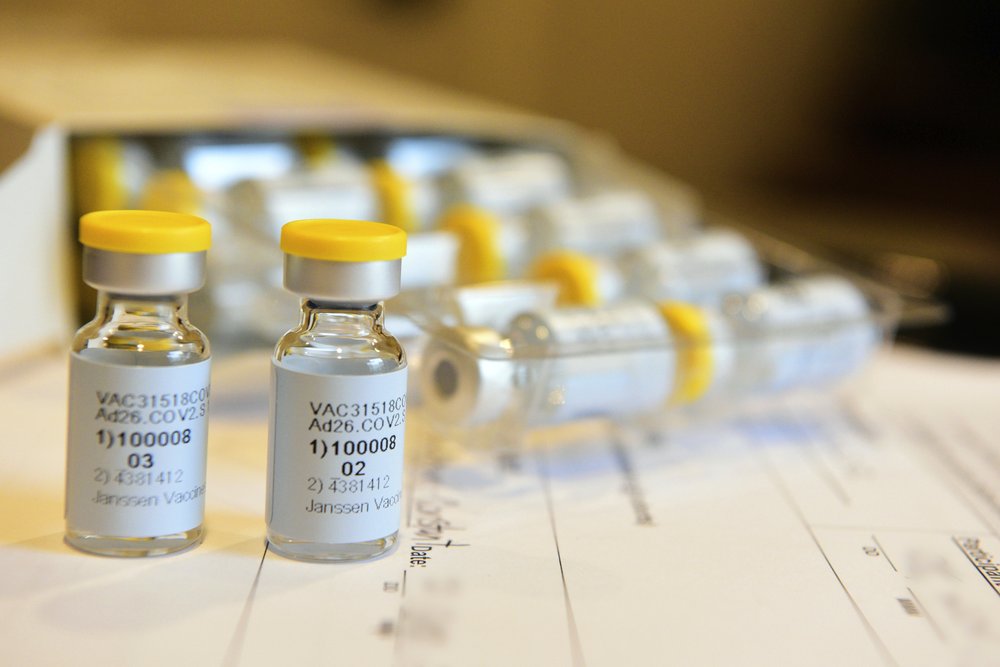Following recommendations from the federal government that states should “pause” distribution of the Johnson & Johnson vaccine, UNC Health held a press conference to talk about J&J vaccine distribution locally and what this pause means for the healthcare system.
The Centers for Disease Control and Prevention and the Food and Drug Administration have recommended that the United States pause the administration of Johnson & Johnson’s COVID-19 vaccine after six cases of a “rare and severe” blood clot were reported one week after vaccination.
Since receiving FDA emergency authorization in February, more than 6.8 million doses of the Johnson & Johnson vaccine have been administered across the country.
Secretary of the North Carolina Department of Health and Human Services Dr. Mandy Cohen said the state is following recommendations to “pause” J&J vaccination despite cases of unusual blood clots being rare.
“What we’re talking about today is an incredibly rare, literally one in a million, type of adverse reaction,” Cohen said. “But we do want folks to know about it. I think it’s our vaccine safety system working. So, if you are having those severe reactions of a severe headache after day three, abdominal pain, leg pain, or shortness of breath, please do get in touch with your provider.”
FDA officials emphasized that Tuesday’s recommendation to pause J&J distribution was not a mandate. Doctors and patients can still use the vaccine if they decide its benefits outweigh its risks for individual cases.
Dr. David Wohl, a professor of medicine and top infectious disease expert at UNC said, despite it not being a mandate, UNC Health will also be pausing its distribution as adverse side effects are examined.
“We do know that these vaccines, all three of them, work,” Wohl said. “That they prevent people from dying and getting hospitalized – we know that. We may know that there may be a very, very rare side effect associated with this one particular vaccine which has other properties that we like – including being easy to administer and giving one dose – we don’t know that for sure but we’re investigating it.”
UNC Health said it will not use the one-shot vaccine at its local vaccination clinics until more recommendations are made. Last week, the vaccination clinic at the Friday Center in Chapel Hill received nearly 9,000 first doses of vaccine – 6,400 of which were Johnson & Johnson.
Prior to the pause, on Tuesday, there were about 250 patients scheduled to receive J&J vaccines at UNC Health’s vaccination clinics at the Friday Center, its Hillsborough campus, and the Panther Creek campus in Cary. Wohl said those patients have been given the option to reschedule.
“For UNC Health, if you have a J&J appointment, come anyhow and we will give you either a Moderna or Pfizer vaccine,” Wohl said. “We don’t want you to delay. People who are walking in today, we’re explaining things to them and we’re offering them a Pfizer or Moderna vaccine – whichever we have on hand. It’s gone really smoothly.”
UNC Health officials said any remaining J&J doses will be stored. The one-shot doses can be safely stored for up to three months in a refrigerator.
Johnson & Johnson said in a statement that it was aware of the reports of blood clots, but that no link to its vaccine has yet been established. However, out of an “abundance of caution,” the company said it is delaying the rollout of its vaccine in Europe.
Wohl said UNC Health has administered roughly 11,400 doses of the J&J vaccine and, amid these new recommendations, will closely monitor those who have most recently received their shot.
“The concern is for folks who’ve gotten vaccinated within the last two to three weeks,” Wohl said. “So, we have about 5,500 folks who fit into that category – they were vaccinated within the last three weeks or 21 days.”
As of Monday, about 30 percent of North Carolina’s adult population is fully vaccinated with 41 percent partially vaccinated. This week, with J&J vaccination paused, 85,000 first doses of Pfizer and Moderna will be allocated to North Carolina’s healthcare systems.
Wohl said the state still has a long way to go – and despite current setbacks with the J&J vaccine – vaccination efforts are as important as ever.
“This is a disappointment – no doubt about it – but we need to make it up with Moderna and Pfizer and go full speed ahead,” Wohl said.
Lead photo via Cheryl Gerber/AP, Courtesy of Johnson & Johnson.
Chapelboro.com does not charge subscription fees. You can support local journalism and our mission to serve the community. Contribute today – every single dollar matters.

